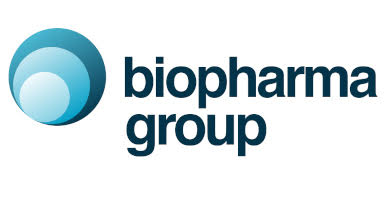PCR is a technique used to amplify and then quantify a particular DNA sequence for the diagnosis of genetic mutations or for the identification of a particular genetic sequence that might be present in a vaccine or a virus. Typically, several reagents are mixed together to form a single reaction mixture to assist with isolation of a particular sequence. It is important to ensure that creating this complex blend of reagents is reproducible for every sample as errors can lead to false results.
Preparation and storage of PCR reagents
Producing PCR reagents in a controlled environment helps to prevent the introduction of contaminants. After preparation of the reagents it can be difficult to maintain the required levels of cleanliness required to prevent contamination of the product. In liquid form these diagnostic reagents may be light or oxygen sensitive, have short shelf lives at room temperature, may require low storage temperatures to retain their activity and can be more prone to exposure of contaminants. Stability is also an issue, with the standard method of preservation being storage at ≤20°C following the addition of glycerol or a similar cryo-protectant which can be expensive in the long term.
Developing formulations for freeze drying
Freeze drying (lyophilisation) of these ready mixed materials can be employed in order to stabilise the materials enough to allow for higher and more cost effective storage conditions and significantly longer shelf lives whilst also protecting the materials in sealed wells, tubes or vials.
When preparing reagents for freeze drying it is important to know as much about the frozen state characteristics of the material as possible. Frozen state glass transitions (Tg) and collapse temperatures are good indicators of the cycle parameters required in order to produce good freeze dried (lyophilised) material. In the case of low Tg or collapse temperature (<50°C), the addition of one or more excipients may be required. Excipients are generally used in order to increase the stability of the freeze dried material either by increasing the activity of the material that required drying or increasing the onset of collapse temperature of the material resulting in a cycle which can be run at higher temperatures saving the time and costs associated with cycles at low temperatures.

Freeze-dried diagnostics cakes
Once the materials have been freeze dried and the water removed by sublimation, the material is more stable than in liquid form and can be stored for long periods of time at room temperature. These cakes can be dried in a variety of volumes and concentrations meaning that they can fulfill a significant range of requirements. Small cakes stored in a sterile environment are ideal for use at sample sites with mobile laboratories. Testing of a large number of samples, in particular those from a large population, for example,animals close to a disease outbreak, is difficult as hundreds of samples need to be taken, stored and shipped for analysis. The advantage of portable rapid technology means that samples can be taken and directly added to the cakes before transfer to PCR machines for amplification and analysis. This quick turnaround is important for early diagnosis and effective treatment.
The future
Recently advances have been made and ‘in-tube’ freeze dried reagents have started to be optimised for freeze drying the reagents on paper strips. Paper-based diagnostics (as with in-tube reagents) can also be used to identify the presence of a particular gene associated with viral infection. Low volumes of enzymes and diagnostic reagents are flash frozen on the paper samples before freeze drying which can have the same activity as enzymes in cell. The use of paper as a platform for storing the freeze dried reagents means that each reaction is compact and can provide almost instant results in the field or in the lab. The paper is coated with a water repellent material to create wells into which material can be dispensed for freeze drying. Once dried, the sample is then applied to the well before the PCR reaction can take place.
To find out more on how freeze drying can help you improve your PCR reagent stability, please contact Thomas Codd on tcodd@biopharma.co.uk or +44 1962 841092.

